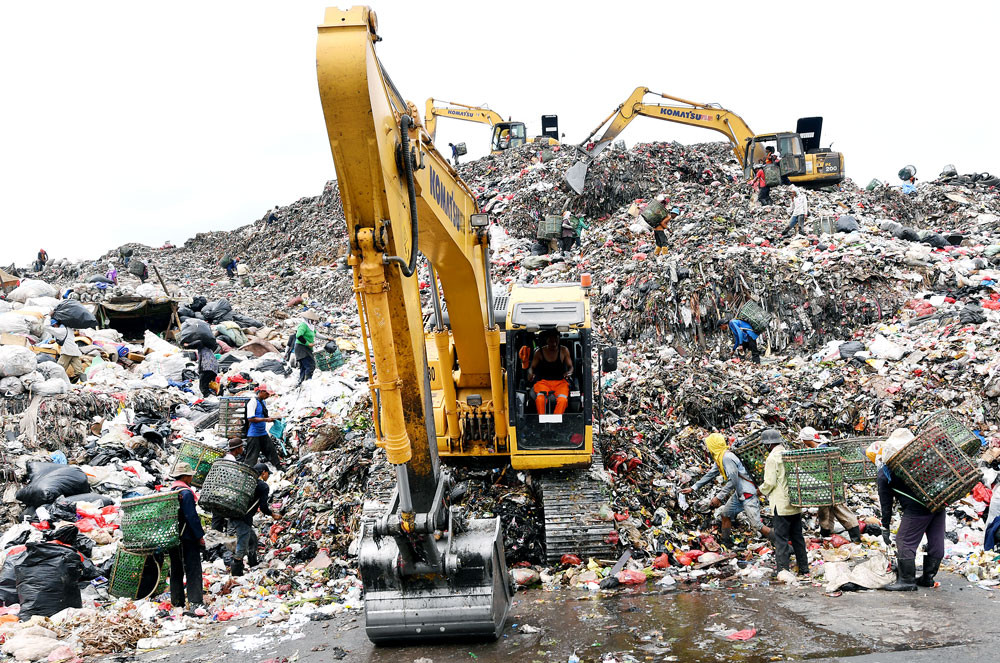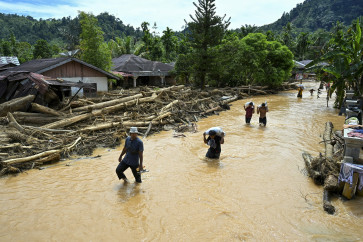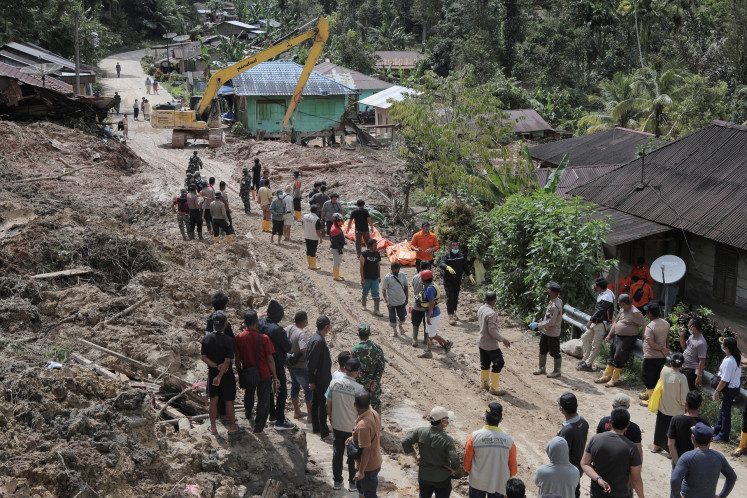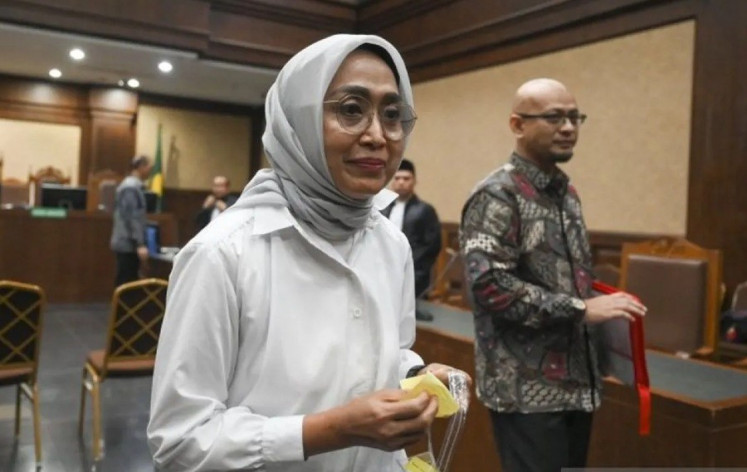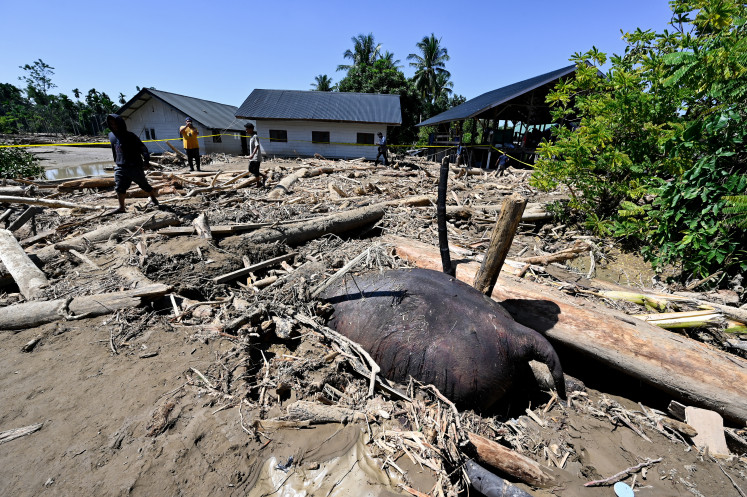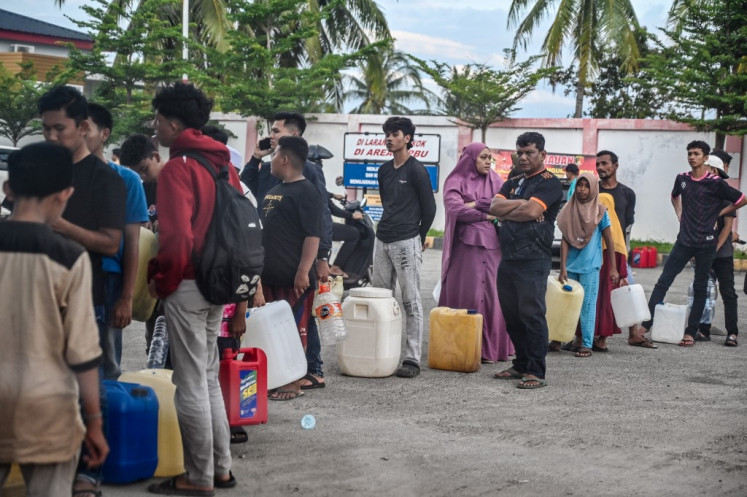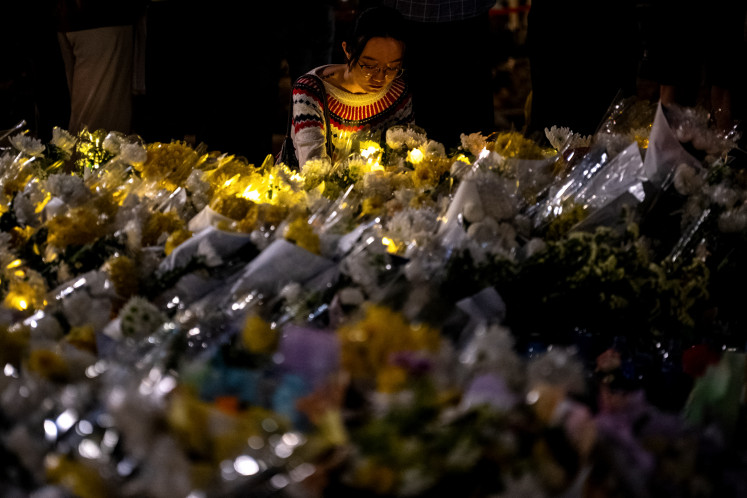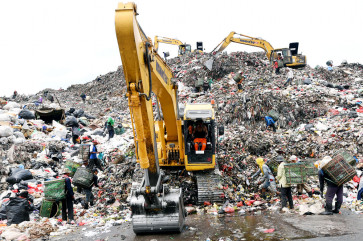Popular Reads
Top Results
Can't find what you're looking for?
View all search resultsPopular Reads
Top Results
Can't find what you're looking for?
View all search resultsInnovative solution to the perennial waste problem
Solving Jakarta’s waste problem will require the identification of new technology partners and funding sources, as well as a legal and political climate that is conducive to international investments.
Change text size
Gift Premium Articles
to Anyone

Indonesia’s 270 million citizens increasingly flock to urban centers in search of opportunities to improve their welfare, creating massive challenges in the field of public waste and energy management.
The myriad environmental problems are still haunting the country now that it holds the presidency of the Group of 20 and will host its summit in Bali in November.
Indonesia, for example, continues to be one of the world’s largest producers of plastic waste. Jakarta alone generates over 7,000 tons of waste per day, and landfills like Bantar Gebang, West Java, are close to capacity. Over 20,000 pemulung (scavengers) toil at the lower end of the waste management industry, highlighting the dire need for innovative solutions.
Against this backdrop, policymakers are increasingly committed to finding new ways to attenuate the waste crisis. Promising efforts are underway. Jakarta’s Investment Center currently oversees 14 projects aiming at taking waste management solutions to the next level. Key efforts include the construction of waste-to-energy plants, such as immediate treatment facilities (ITF) and the reduction of maritime plastic around Thousand Islands regency.
In 2018, Jakarta Governor Anies Baswedan launched the ITF Sunter project, emphasizing that advanced technological solutions are in the interest of future generations. Sadly, this project came to an abrupt halt when a Finnish technology firm and international financing partners withdrew because of a perceived lack of political guarantees.
Solving Jakarta’s waste problem will require the identification of new technology partners and funding sources, as well as a legal and political climate that is conducive to international investments and public-private partnerships (PPP). For instance, environmental laws will need to set rules and incentives that resonate with international standards and foster technology investments.
The central objective is to attract technological solutions that process large amounts of waste, without generating social and environmental costs for surrounding neighborhoods. Negative externalities – toxic haze, contaminated water or incessant noise – are ideally contained to a minimum. The challenge is further compounded by budget considerations.

